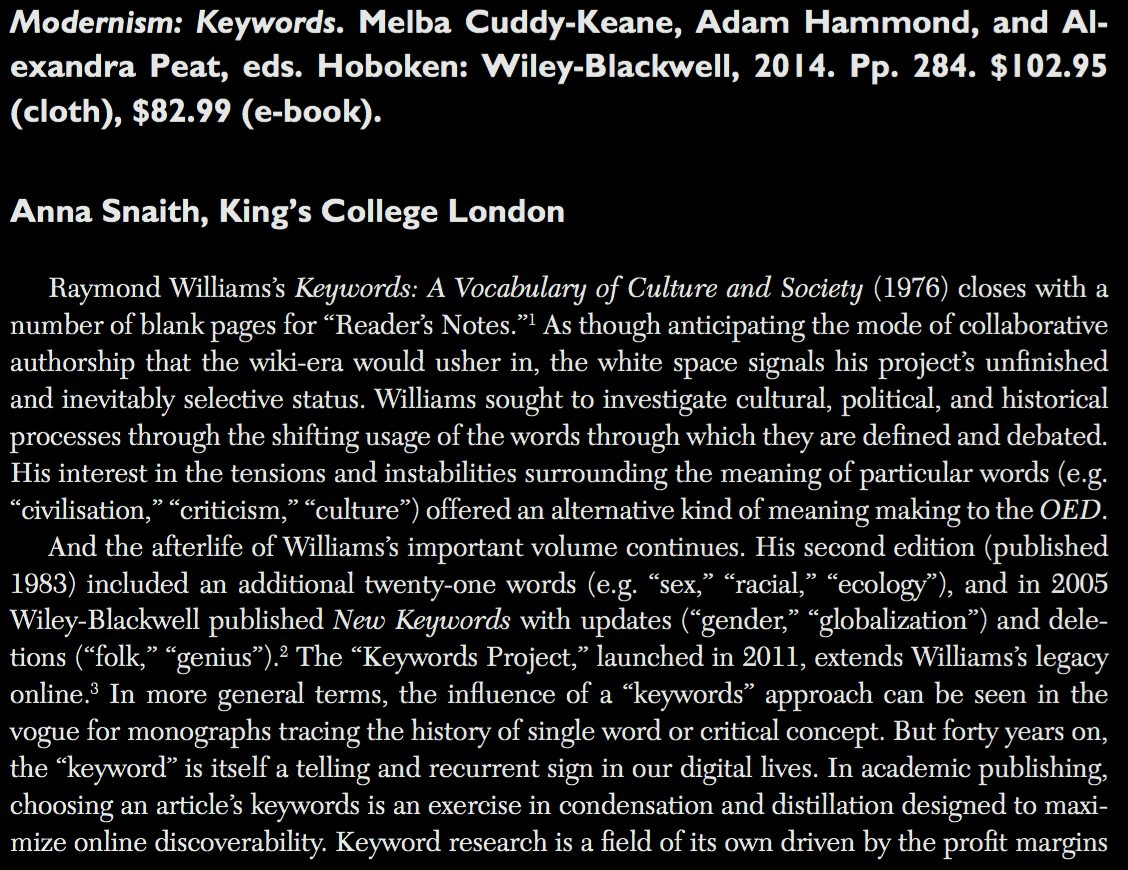Two years after its first publication, Modernism: Keywords has received its first serious review. To date, the peculiar genre of the book (is it a reference work? a monograph? an edited collection?) has made it a challenge for potential reviewers. We have received some quite disappointing reviews in trade publications, and a well-intentioned but rather hapless review in the Times Literary Supplement. We did get some wonderful recognition in the form of a nomination for the 2015 Modernist Studies Association Book Prize for an Edition, Anthology, or Essay Collection (the problem of genre again — Keywords is none of those things, really). And now, at last, a wonderful review by Anna Snaith in the April 2016 issue of Modernism/modernity.
Snaith calls the volume “truly groundbreaking” and praises the way that it “returns us to Williams’s spirit of expansive rather than reductive reading practices.” She adds, in some longer passages,
As the editors skilfully trace the multifarious usage of words such as “hygiene,” “primitive,” and “rhythm,” we watch words crystallize momentarily and then spin apart again, both reflecting and propelling cultural and political debates and controversies. (479)
Individual entries are compelling and thought provoking and will be invaluable for students and researchers working in the modernist period. (479)
The deliberately non-chronological arrangement complicates any overly simplistic narrative of causality and the range of genres consulted offers a truly dizzying sense of the multifarious lives of these keywords. (479-480)
This is an ambitious and daring book, and one which will undoubtedly make its mark as a research tool and provocative read for students and researchers. In its detail and its disciplinary interventions, Modernism: Keywords represents a challenge to our ways of thinking and reading. (480)
What is particularly refreshing in Snaith’s review is her recognition that this book is not “merely” a reference work: not only something useful to have at hand when writing an essay or a dissertation on modernism (though I hope it is also that), but also an intervention in modernist studies. We avoided stating this very directly in the book itself, hoping that perceptive reviewers would pick up on the book’s broader implications. Snaith did, and I’m grateful.
Now, if we could only get Wiley-Blackwell to release it as a paperback…

